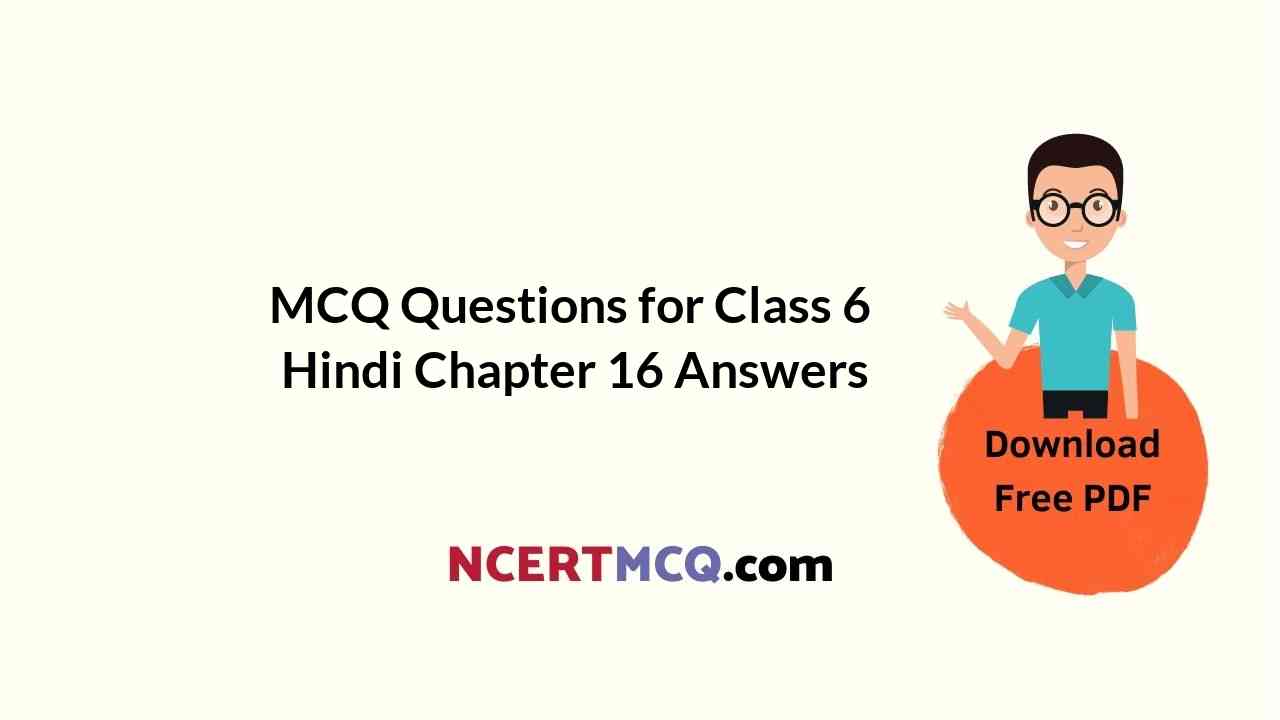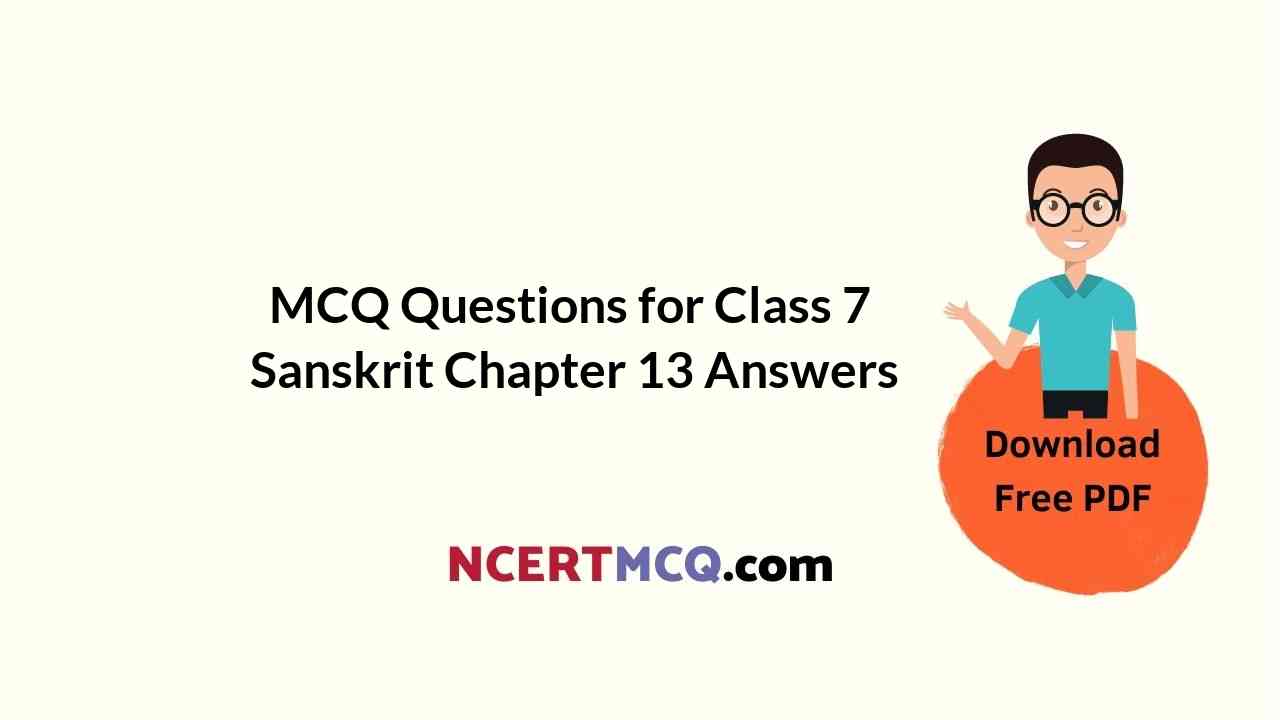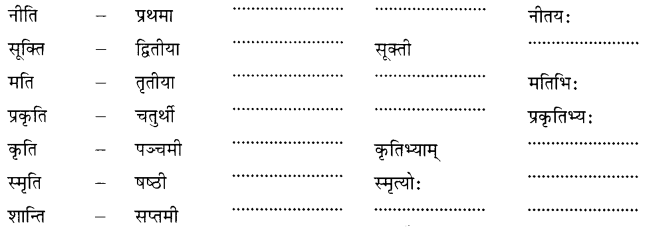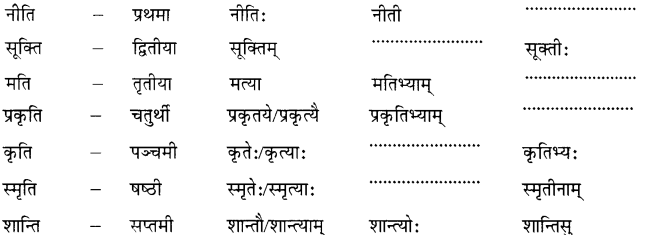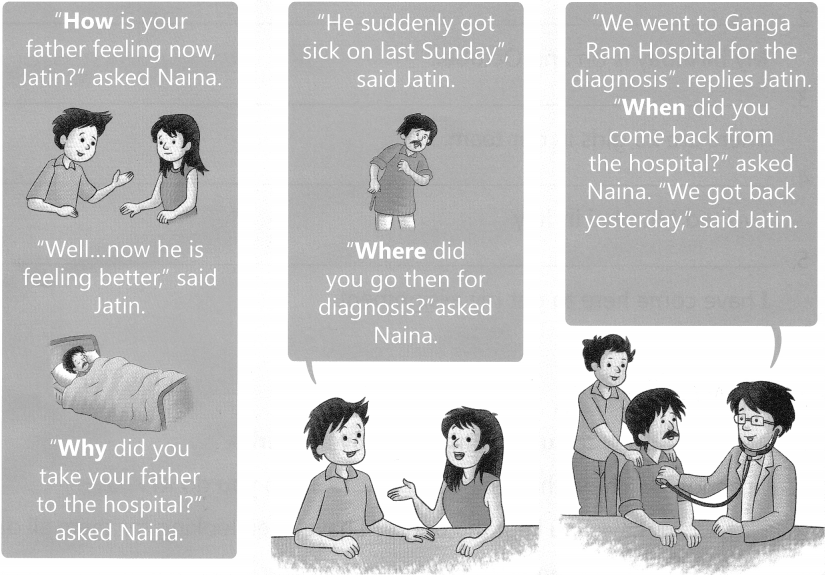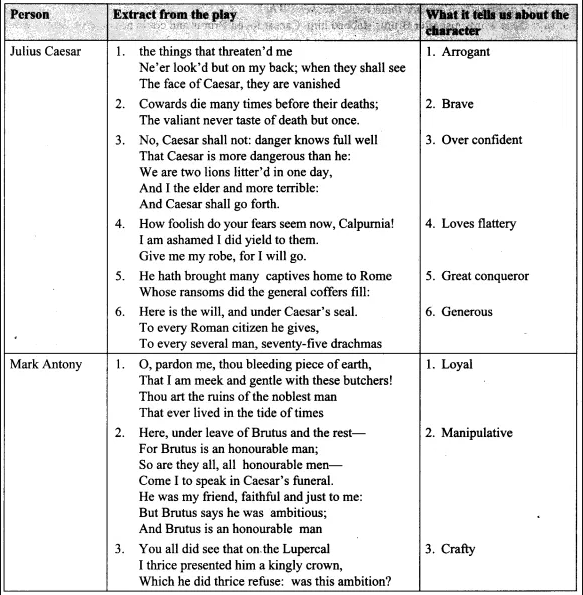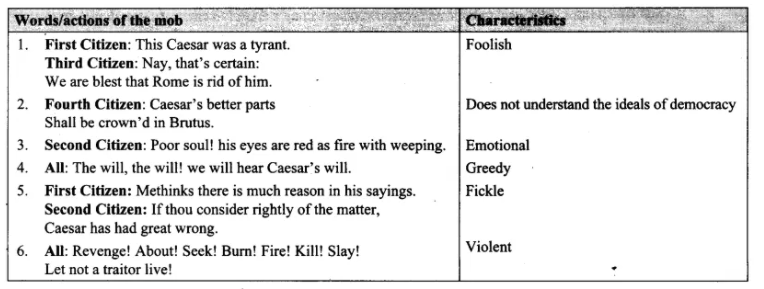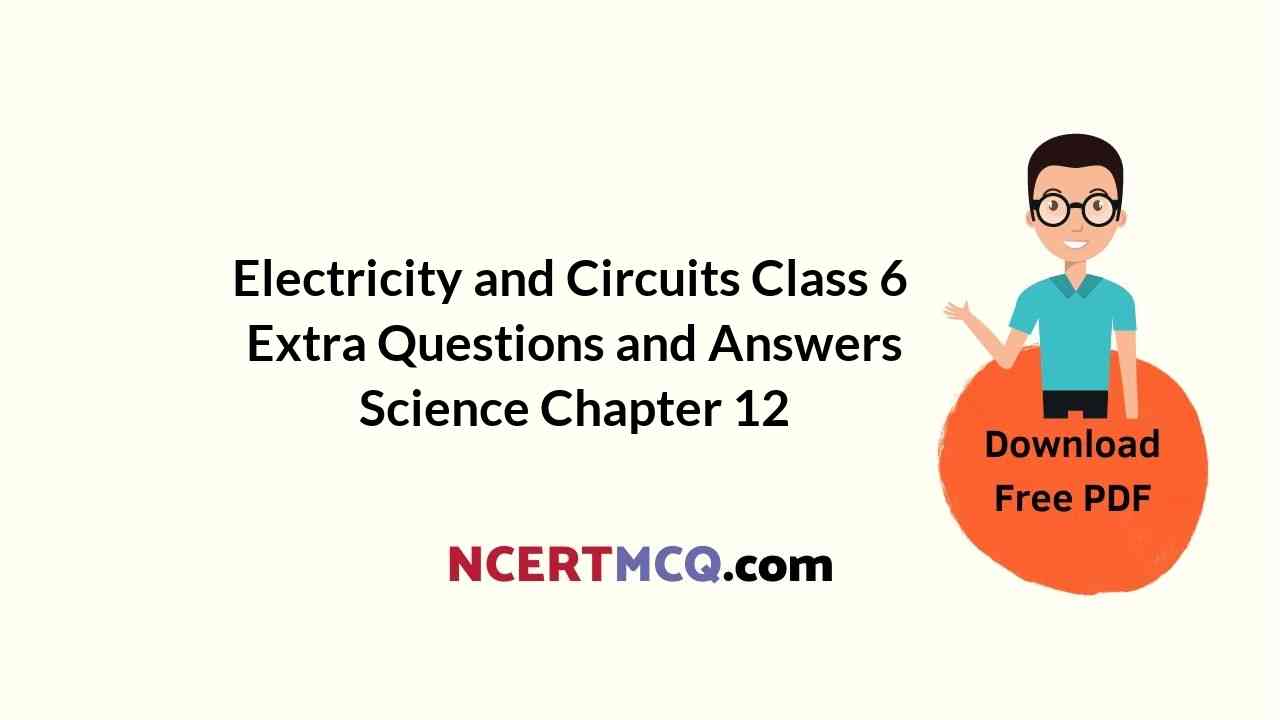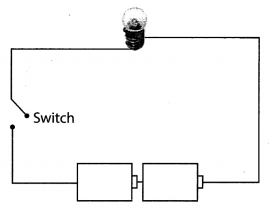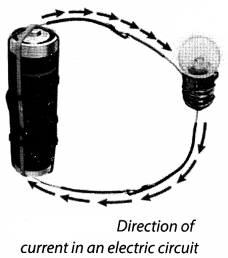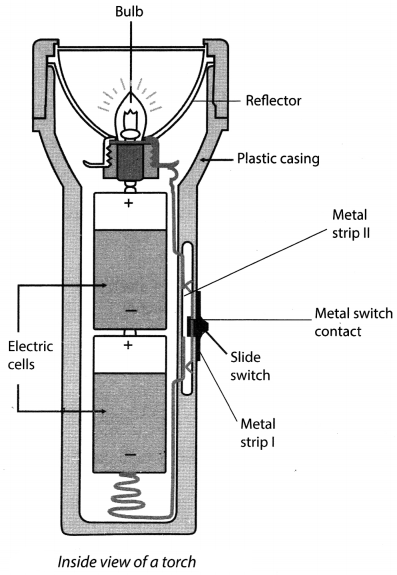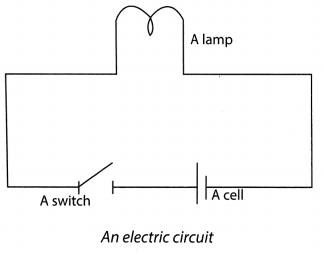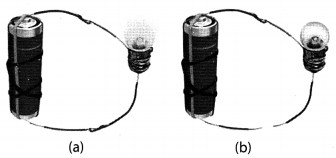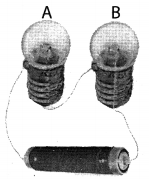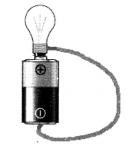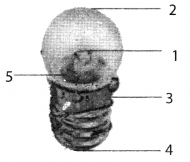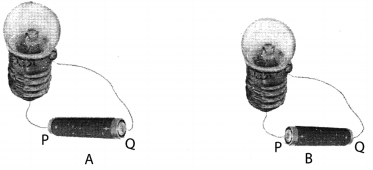Here we are providing Online Education for A Letter to God Extra Questions and Answers Class 10 English First Flight, Extra Questions for Class 10 English was designed by subject expert teachers. https://ncertmcq.com/extra-questions-for-class-10-english/
Online Education for A Letter to God Extra Questions and Answers Class 10 English First Flight
A Letter to God Extra Questions and Answers Very Short Answer Type
A Letter To God Extra Questions Question 1.
What objects did Lencho call “New coins”?
Answer:
Lencho called the “rain-drops’ as new coins.
Letter To God Extra Questions Question 2.
Where was Lencho’s house located?
Answer:
Lencho’s house was located at the crest of a low hill.
A Letter To God Extra Questions And Answers Pdf Question 3.
What could be seen from Lencho’s house?
Answer:
The fields of the ripe com could be seen from his house.
A Letter To God Class 10 Extra Questions Question 4.
What did the earth need?
Answer:
The earth needed some rain.
A Letter To God Short Questions And Answers Question 5.
Why did Lencho keep gazing at the sky?
Answer:
Lencho expected rain and so he kept on gazing at the sky.
Extra Questions Of A Letter To God Question 6.
When did it start raining?
Answer:
It started raining when the family was having dinner.
A Letter To God Long Questions And Answers Question 7.
How did Lencho feel when it started raining?
Answer:
Lencho was very happy and felt that the raindrops were coins, promising money.
A Letter To God Extra Questions And Answers Question 8.
Was the rain really a blessing?
Answer:
No, the rain proved to be a curse.
A Letter To God Short Question Answer Question 9.
What destroyed the crop?
Answer:
The hailstorm which lasted for an hour destroyed the crops.
Letter To God Class 10 Extra Questions Question 10.
How did Lencho and his family react to the calamity?
Answer:
They were filled with sorrow but they had faith in God.
A Letter To God Questions And Answers Question 11.
What was the only ‘One hope’ Lencho bad?
Answer:
His only one hope was help from God.
A Letter To God Very Short Question Answer Question 12.
How did Lencho appeal to God?
Answer:
Lencho wrote a letter to God, asking for one hundred pesos.
A Letter To God Additional Question Answer Question 13.
How did postmaster react seeing Lencho’s letter?
Answer:
The postmaster laughed heartily on seeing Lencho’s letter.
Question 14.
How did the postmaster react on reading Lencho’s letter.
Answer:
He felt that such faith in God should be sustained.
Question 15.
What was the reaction of Lencho after receiving lesser amount of money?
Answer:
Lencho thought that the post office employees had taken, away 30 pesos.
A Letter to God Extra Questions and Answers Short Answer Type
Question 1.
What are the raindrops compared to and why?
Answer:
Raindrops are compared to new coins – ten-cent and five cent pieces. It is because they promised a good harvest and as such good money.
Question 2.
How was Lencho sure that it was going to rain?
Answer:
Lencho knew his fields intimately and he could predict the weather by looking at the sky. His experienced eyes saw clouds and he predicted rain.
Question 3.
What promised a good harvest?
Answer:
Lencho felt that the field of ripe corn dotted with flowers always promised a good harvest. That is why he was anticipating a good harvest.
Question 4.
How did Lencho’s prediction about rain come true?
Answer:
Lencho had looked towards the north-east and remarked that they would get some water. His prediction came true when it started raining in the evening.
Question 5.
Why did Lencho go out?
Answer:
Lencho was eagerly awaiting for the rain which could be good for his crops. So he went out to have the pleasure of feeling the rain on his body.
Question 6.
How did Lencho regard his field? Why?
Answer:
When it started raining Lencho regarded his field with satisfaction. He was happy to see his crop draped in a curtain of rain. He hoped to reap a good harvest.
Question 7.
“It’s really getting bad now.” What was getting bad and how?
Answer:
Lencho was happy when it started raining. But the rain and the weather were getting bad. A strong wind was blowing and hailstones were falling.
Question 8.
Why was Lencho’s soul filled with sorrow?
Answer:
The hail and hailstones rained on the valley for an hour. It had left the field totally covered with snow. The crop was completely destroyed. It made Lencho’s soul filled with sorrow.
Question 9.
Why was the family not really upset?
Answer:
Though Lencho’s family was facing ruin, yet they were not really upset. It was because having immense faith in God, they were confident that God would help them.
Question 10.
Why did the postmaster send a reply to Lencho’s first letter addressed to God?
Answer:
The postmaster “was a generous and amiable man. He was impressed by Lencho’s firm faith in God. To sustain that faith, the postmaster sent a reply to Lencho.
Question 11.
Why was Lencho angry when he received the letter?
Answer:
The postmaster could raise only 70 pesos which he sent to Lencho, supposedly from God. Lencho was angry to find 30 pesos less than the amount he asked for. He was angry because he thought the post office employees had kept 30 pesos sent to him by God.
Question 12.
How was Lencho helped?
Answer:
The postmaster, a kind-hearted and generous man, read Lencho’s letter addressed to God. To sustain his faith, the postmaster raised money from friends and colleagues and sent it to Lencho, in the name of God.
Question 13.
Do you think the post-office employees were ‘a bunch of crooks’?
Answer:
No, they were kind, generous and helpful persons. The postmaster contributed a part of his salary and motivated his friends and colleagues for a charitable cause. So they were not a bunch of crooks.
Question 14.
How would you describe Lencho?
Answer:
Lencho was a simple, naive and a hard-working farmer. He was not only energetic, he had full faith in God also. He became a victim of natural calamity, befit God helped him indirectly.
Question 15.
What did Lencho hope for?
Answer:
Lencho hoped for getting some rain from the sky.
Question 16.
Why did Lencho say the raindrops were like ‘new coins’?
Answer:
Lencho said that the raindrops were like new coins. It was because the raindrops could cause a good harvest that his field needed most. Thus he would get a rich crop. Further the raindrops had a brightness like new coins.
Question 17.
How did the rain change? What happened to Lencho’s fields?
Answer:
The rain changed into heavy hailstone. In no time the whole valley was covered with hailstones. His fields became white as if covered with salt. His com was totally destroyed.
Question 18.
What were Lencho’s feelings when the hail stopped?
Answer:
When the hail stopped, Lencho’s soul was filled with sadness. He was very much troubled. His com was totally destroyed. He said, “the hail has left nothing. This year we will have no com. We will all go hungry”.
Question 19.
Who or what did Lencho have faith in? What did he do?
Answer:
Lencho had deep faith in God. He believed that God would help them all. No one would die of hunger as. He sees everything. Lebcho decided to write a letter to God.
Question 20.
Who read the letter?
Answer:
The postman and the postmaster read the letter.
Question 21.
What did the postmaster do then?
Answer:
The postmaster burst into laughter on seeing the deep faith of Lencho in God. He collected money from his employees. He even gave part of his salary. He put all the money in an envelope addressed to Lencho and wrote a letter containing a single word “God”.
Question 22.
Was Lencho surprised to find a letter for him with money in it?
Answer:
Lencho was not at all surprised to find a letter with money in it.
Question 23.
What made him angry?
Answer:
Lencho was angry on counting the money since it was less than the amount he had asked for. He had deep faith that God could neither make a mistake nor could deny what was requested.
Question 24.
Why does the postmaster send money to Lencho? Why does he sign the letter “God”?
Answer:
The postmaster was a very generous fellow. In order not to shake Lencho’s faith in God, he collected money and sent it to Lencho. The postmaster signed the letter “God”, lest Lencho should think that the money had not been sent by God.
Question 25.
Did Lencho try to find out who had sent the money to him? Why/why not?
Answer:
Lencho was a simple-minded person. He had firm faith in God. So he did not try to find out who had sent the money. He was of the view that the money was sent by God and none else could do such an act.
A Letter to God Extra Questions and Answers Long Answer Type
Question 1.
What was Leneho’s pride and possession?
Answer:
Lencho lived in the solitary house on the crest of a low hill in the valley. From here, he could survey and see the river and his pride, the field of ripe corn dotted with flowers. These always promised a good harvest.
Their only wish was a downpour and Lencho, who knew his fields intimately, predicted rain. His prediction turned true when it started raining during dinner. He went out to feel the rain and surveyed with satisfaction, his crop draped in a curtain of rain. He regarded rain drops as a new silver coins.
Question 2.
Bring out Lencho’s immense faith in God.
Answer:
Lencho wanted some rain for his crop. The ripe corn stood proud in the field and promised a good harvest. Rain came, as he predicted but turned to hail and ruined his crop. Lencho’s heart was filled with sorrow. But he did not lose heart. He had firm belief in God.
He wrote a letter to God, asking him to send 100 pesos so that he could sow his field again. He dropped ‘ the letter in the mail. The postmaster read the letter addressed to ‘God’ and to preserve theman’s faith in God, he raised 70 pesos and sent them to Lencho.
Lencho could not believe that God had made a mistake. He wrote again asking God to send the rest of the money, but not through mail. He believed that the post office employees were ‘a bunch of crooks’.
Question 3.
How was Lencho’s crop destroyed? How did he ask God for help?
OR
How did the hailstones affect Lencho’s field? What was Lencho’s only hope?
Answer:
Being a farmer, Lencho was completely dependent upon the crops of his field. Once a heavy downpour occurred. Along with rain large hailstones also started falling. As a result the field turned white as if it had been covered with salt all over. His annual crop was completely destroyed.
Even there was not a single flower left on the plants. In the entire village there was no one to help him in the lurch. Being a firm believer in God, he turned to the Almighty for the help. He wrote a letter requesting him to send 100 pesos so that he might sow his fields again till the next crop comes. He had a belief that God would certainly help him with the money.
Question 4.
“I wish I had the faith of the man who wrote this letter.” In the light of this statement describe Lencho’s character.
Answer:
As soon as the postmaster received and read the letter written by Lencho to God, he expressed his feelings in the words by referring Lencho’s faith in God. Lencho, the writer of the letter was a simple farmer. He had a firm belief in God. Once, when his crop was destroyed by hailstones, he turned to God for help.
He wrote a letter believing that God would not leave them to die of hunger and starvation. When he received a packet full of money, he was not the least surprised. Being simple in mind and generous by soul, he never knew that some generous soul had sent him the money in the name of God.
Question 5.
As the postmaster, write how you felt when Lencho accused you and your men of stealing money. Comment.
Answer:
I was shocked and discouraged at the first sight when I grabbed the letter of complaint from Lencho in which he accused me and my employees of stealing money. I could not expect such kind of a treatment. Although I had involved every man in my office in that generous work, yet Lencho regarded us as a bunch of crooks.
This man proved very ungrateful. I was so downcast that I decided not to send the rest of the money. If I did so he would be convinced that we had already cheated him. In the name of God we should let him suffer and face the situation boldly. I pray to God to have pity on him.
Question 6.
Why did Lencho write a letter to God?
Answer:
Lencho was a hardworking, simple farmer. He had sown a field of com and was waiting for rains. His joy knew no bounds when it started raining. He expected^ good harvest. But his joy turned to sorrow when rain gave way to hail. After an hour, the field of golden corn was covered with snow. The crop was totally destroyed. Lencho faced ruin. The year seemed bad without any food. This simple, god-fearing man had immense faith in the Almighty. He wrote a letter to God asking for 100 pesos to sow his field again.
Question 7.
What did the postmaster need to answer the letter? How did he collect it? How did Lencho react to the help?
OR
How did post office employees help Lencho? How did Lencho react to their help?
Answer:
The postmaster needed something more than ink and paper to answer the letter. He needed 100 pesos. He gave up a part of his salary and asked all other employees to help. Even friends were made to contribute for a cause of charity. Thus, he managed to collect 70 pesos. Lencho wasn’t surprised to receive the letter. But he was angry to receive 70 pesos instead of 100. He didn’t doubt God, such was his confidence. So he wrote another letter to God asking him to send the rest of the money. He warned him not to send it through the post office because those people were a ‘bunch of crooks’.
Question 8.
How do you think the postmaster felt when he received Lencho’s second letter? What do you think he did?
Answer:
The postmaster must have felt shocked and let-down. The contentment, which he had felt when Lencho had taken the letter, would have been replaced by consternation. All his generosity and desire to maintain Lencho’s faith had been wasted.
Yet, I believe, he must also have been amused at Lencho’s unshakeable faith in God. He must have made greater effort to collect the rest of the money. He would have sent a letter along with the money, saying that the postal employees were not a ‘bunch of crooks’.
Question 9.
If you had been Lencho, and this incident would have happened with you, what would have you done? Describe your feelings in simple words.
OR
We are faced with difficult situations at some points of time in life. God’s help comes to our rescue then. But God helps those who help themselves. Comment.
Answer:
If I had been Lencho and this incident would have happened with me, the way of solving my problem would have been different. I am quite familiar with the realities of the world. I know that God cannot receive any letter by the post and neither can God help me directly. “God only helps those who help themselves.”
I would have tried to search another work for some time so that I could survive and feed my family. Then I would have tried to save some amount to sow my field again.
Question 10.
Think about the statement:
“Faith can move mountains.” Do you think that this feeling had been in Lencho’s mind and so he could have been able to write a letter to God? Throw light on his feelings.
Answer:
Without any doubt, I can say that this statement has a great importance. This statement can give a great strength to anyone who is about to fall deep down in earth, reason may be different. According to me, this is true that Lencho has deep faith in God. Because of his faith in God, he wrote a letter to God. When he got seventy pesos, once again he wrote a letter to God to get the remaining amount. So we can say that his feelings for God were very powerful.
Question 11.
The reader may also be impressed with Lencho’s faith as the postmaster was. Can we see such an example in present time? If you were in place of postmaster what would have you done?
Answer:
Yes, it is quite obvious that the reader may get impressed to see Lencho’s faith in God because it is rare. It is also possible that the thoughts might be different. Now the time is very fast and no one has so simple and pure feelings. It is very difficult to find out such an example at present. The example of the postmaster is also very rare. Now even our close relatives do not help us in our need.
If I were in place of postmaster, I too would have helped Lencho. But my pattern would have been different. I would have called Lencho and handed over the amount to him. I would try to make him realise that God does not help us directly and “God helps only those who help themselves.
Question 12.
Who does Lencho have complete faith in? Which sentences in the story tell you this?
Answer:
Lencho has complete faith in God. The following sentences tell us this.
(a) Lencho thought only of his one hope – the help of God, whose eyes, as he had been instructed, see everything even what is deep in one’s ‘conscience’.
(b) He wrote “God, if you don’t help me, my family and I will go hungry this year”.
(c) “God, the money that I asked for, only seventy pesos reached me, send me the rest”.
Question 15.
Who does Lencho think has taken the rest of the money? What is the irony in the situation? (Remember that the irony of a situation is an unexpected aspect of it. An ironic situation is strange or amusing because it is the opposite of what is expected?)
Answer:
Lencho has thought that the rest of the money has been taken by the post office employees. He believed that God could not send him less money than what he had asked for. Here one can find the irony that the money has been collected and paid by the post-office employees. He does not believe in them. He calls them “a bunch of crooks”. He thinks that thirty pesos have been kept by the post office employees. He has got no idea that even the amount of seventy pesos has been sent by them.
An irony is an amusing or a strange situation because we find it quite opposite in nature from what we duly expect. Here the post office employees collect and send money to Lencho. He calls them a group of cheats on not receiving the full amount.
Question 16.
Are there people like Lencho in the real world? What kind of a person would you say he is? You may select appropriate words from the box to answer the question.
greedy, naive, stupid, ungrateful, selfish, comical, Unquestioning.
Answer:
One can find many people like Lencho in the real world. In true sense, Lencho is a simple minded fellow. He is quite ignorant of worldly events. Like an innocent person, he has firm faith in God. He thinks “God sees everything, even what is deep in one’s conscience”. He believes in his work and is like an ox of a man who goes on working and minding his own business. In reality he is an unquestioned worshipper and follower of God. He is a hardworking person. He lives-with his family on a hill. He is a naive, comical and unquestioning person.
Question 17.
There are two kinds of conflicts in the story: between humans and nature, and between humans themselves. How are these conflicts illustrated?
Answer:
We can find two kinds of conflicts in the story namely:
- between humans and nature
- between humans themselves Let us see about them:
Between humans and nature: Lencho is a hardworking farmer. He needs a shower of rain for his crop. He waits for the rain to come. By chance the rain starts pouring with hailstones. It hailed heavily. The crop was totally destroyed. He was totally upset. This is one conflict.
Between humans themselves: After complete destruction, Lencho writes a letter to God for money. The postmaster opens the letter addressed to God. In order not to shake the writer’s faith in God, he collects money from his employees. He too contributes from his salary. He sends more than half to Lencho signed as God. On receiving the money, Lencho gets angry. He believes that the post office employees have taken some of his money. This is a conflict between humans themselves.
A Letter to God Extra Questions and Answers Reference to Context
Read the following passages and answer the questions that follow:
Question 1.
The house—the only one in the entire valley—sat on the crest of a low hill. From this height one could see the river and the field of ripe com dotted with the flowers that always promised a good harvest. The only thing the earth needed was, a downpour or at least a shower. Throughout the morning Lencho— who knew his fields intimately—had done nothing else but see the sky towards the north-east. “Now we’re really going to get some water, woman.” The woman who was preparing supper, replied, “Yes, God willing”.
(i) Where was the house located?
(ii) What did the field of com dotted with flowers promise?
(iii) What did the earth need?
(iv) Pick out the words from the passage which mean the same as
(a) Peak (b) Rain (c) Food
Answer:
(i) The house was located on the crest of a low hill.
(ii) The field of com dotted with flowers promise a good harvest.
(iii) The earth needed a downpour or at least a shower.
(iv) (a) crest (b) downpour (c) supper
Question 2.
The older boys were working in the field, while the smaller ones were playing near the house until the woman called to them all, “Come for dinner”. It was during the meal that, just as Lencho had predicted, big drops of rain began to fall. In the north-east huge mountains of clouds could be seen approaching. The air was fresh and sweet. The man went out for no other reason than to have the pleasure of feeling the rain on his body, and when he returned he exclaimed, “These aren’t raindrops falling from the sky, they are new coins. The big drops are ten cent pieces and the little ones are fives.”
(i) What were the boys doing?
(ii) What had Lencho predicted?
(iii) Why did Lencho go out?
(iv) What did he compare to new coins?
Answer:
(i) The boys were working in the field and the younger ones were playing near the house.
(ii) Lencho had predicted that it would rain.
(iii) Lencho went out to enjoy the rain.
(iv) He compared the raindrops to new coins.
Question 3.
With a satisfied expression he regarded the field of ripe corn with its flowers, draped in a curtain of rain. But suddenly a strong wind began to blow and along with the rain very large hailstones began to fall. These truly did resemble new silver coins. The boys, exposing themselves to the rain, ran out to collect the frozen pearls.
(i) Who is ‘he’ in the passage?
(ii) What did it suddenly change?
(iii) What resembled new silver coins?
(iv) Why did the children run out?
Answer:
(i) Lencho is ‘he’ in the passage.
(ii) Suddenly, a strong wind began to blow and along with the rain very large hailstones began to fall.
(iii) Hailstones resembled the new silver coins.
(iv) The children ran out to collect the frozen pearls i.e., the hailstones.
Question 4.
“It’s really getting bad now,” exclaimed the man. “I hope it passes quickly. “It did not pass quickly. For an hour the hail rained on the house, the garden, the hillside, the cornfield, on the whole valley. The field was white, as if covered with salt. Not a leaf remained on the trees. The com was totally destroyed. The flowers were gone from the plants. Lencho’s soul was filled with sadness. When the storm had passed, he stood in the middle of the field and said to his sons, “A plague of locusts would have left more than this. The hail has left nothing. This year we will have no com.”
(i) What was really getting bad?
(ii) Why did he wish for it to pass quickly?
(iii) Why will they have no com that year?
(iv) Why was Lencho’s soul filled with sadness?
Answer:
(i) The continuous falling of hailstones was getting really bad.
(ii) He wished it to pass quickly because it was not good for his crops.
(iii) They would have no com that year because the com in the field was totally destroyed by the hailstones.
(iv) Lencho’s soul was filled with sadness because his total com was destroyed.
Question 5.
All through the night, Lencho thought only of his one hope: the help of God, whose eyes, as he had been instructed, see everything, even what is deep in one’s conscience. Lencho was an ox of a man, working like an animal in the fields, but still he knew how to write. The following Sunday, at daybreak, he began to write a letter which he himself would carry to town and place in the mail. It was nothing less than a letter to God.
“God,” he wrote, “if you don’t help me, my family and I will go hungry this year. I need a hundred pesos in order to sow my fields again and to live until the crop comes, because the hailstorm…”
(i) What did Lencho think of all through the night?
(ii) Which sentence shows that Lencho was a hardworking farmer?
(iii) What did Lencho decide to do?
(iv) What did he ask God to do for him?
Answer:
(i) All through the night, Lencho thought only of his one hope—the help of God.
(ii) “Lencho was an ox of a man,’ working like an animal in the field.” This sentence shows that he was a hardworking farmer.
(iii) Lencho decided to write a letter to God.
(iv) He asked God to help him by sending one hundred pesos.
Question 6.
He wrote “To God’ on the envelope, put the letter inside and, still troubled, went to town. At the post office, he placed a stamp on the letter and dropped it into the mailbox. One of the employees, who was a postman and also helped at the post office, went to his boss laughing heartily and showed him the letter to God. Never in his career as a postman had he known that address. The postmaster—a fat, amiable fellow—also broke out laughing, but almost immediately he turned serious and, tapping the letter on his desk, commented, “What faith! I wish I had the faith of the man who wrote this letter. Starting up a correspondence with God!”
(i) Who is he in the passage?
(ii) Why did he write a letter to God?
(iii) Who received the letter? Why did he laugh?
(iv) Why did the postmaster become serious?
Answer:
(i) Lencho is ‘he’ in the passage.
(ii) He wrote a letter to God asking for help.
(iii) The postmaster received the letter. He laughed heartily to see a letter addressed to God. Nobody ever wrote to God.
(iv) The postmaster became serious when he realised the deep faith of the writer in God.
Question 7.
So, in order not to shake the writer’s faith in God, the postmaster came up with am idea: answer the letter. But when he opened it, it was evident that to answer it he needed something more than goodwill, ink and paper. But he stuck to his resolution: he asked for money from his employees, he himself gave part of his salary, and several friends of his were obliged to give something ‘for an act of charity’. It was impossible for him to gather together the hundred pesos, so he was able to send the farmer only a little more than half. He put the money in an envelope addressed to Lencho and with it a letter containing only a single word as a signature: God.
(i) Why did the postmaster decide to answer the letter?
(ii) What was required to answer the letter?
(iii) What did the postmaster do?
(iv) How much did he collect for Lencho?
Answer:
(i) The postmaster did not want to shake the writer’s faith in God. So, he decided to answer the letter.
(ii) One hundred pesos were required to answer the letter.
(iii) The postmaster decided to help Lencho. He asked his employees and his friends to contribute and he also gave part of his salary.
(iv) The postmaster could collect only seventy pesos for Lencho.
Question 8.
The following Sunday Lencho came a bit earlier than usual to ask if there was a letter for him. It was the postman himself who handed the letter to him while the postmaster, experiencing the contentment of a man who has performed a good deed, looked on from his office. Lencho showed not the slightest surprise on seeing the money; such was his confidence—but he became angry when he counted the money. God could not have, made a mistake, nor could he have denied Lencho what he had requested.
(i) Why did Lencho come to the post office?
(ii) Why was the postmaster happy and content?
(iii) Why did Lencho show no surprise on seeing the money?
(iv) Why did Lencho get angry?
Answer:
(i) Lencho came to the post office to see if there was any letter from him.
(ii) The postmaster was happy and contented because he had done an act of charity.
(iii) Lencho did not show any surprise because he had deep faith in God.
(iv) Lencho got angry when he counted the money, he found that it was less than the amount he had requested. He was sure that God had not made the mistake.
Question 9.
Immediately, Lencho went up to the window to ask for paper and ink. On the public writing-table, he started to write, with much wrinkling of his brow, caused by the effort he had to make to express his ideas. When he finished, he went to the window to buy a stamp which he licked and then affixed to the envelope with a blow of his fist. The moment the letter fell into the mailbox the postmaster went to open it. It said: “God: Of the money that I asked for, only seventy pesos reached me. Send me the rest, since I need it very much. But don’t send it to me through the mail because the post office employees are a bunch of crooks. Lencho.”
(i) Why did Lencho go up to the window?
(ii) What made Lencho angry? What did he think?
(iii) Why did Lencho ask God not to send money by post?
(iv) What did Lencho call the employees of the post office?
Answer:
(i) Lencho went to the window to write another letter to God.
(ii) Lencho was angry because he found less money in the envelope. He thought that thirty pesos had been taken out by the employees of the post office.
(iii) Lencho requested God not to send money by post because he thought that the employees of the ‘ post office were dishonest.
(iv) Lencho called them ‘a bunch of crooks’.

